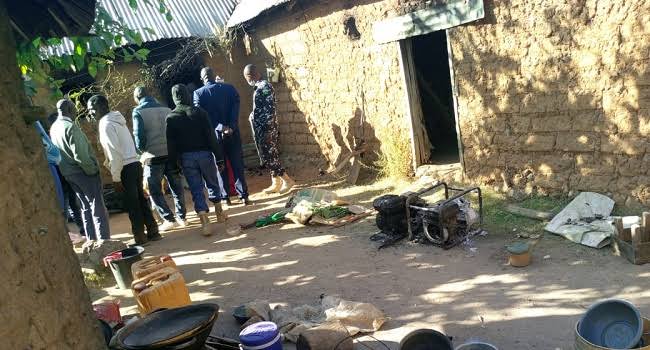The killing fields of Plateau State have once again been soaked in blood, this time claiming 52 lives in Bokkos Local Government Area.
After the gruesome Christmas 2023 massacre that left about 200 people dead, we had hoped that state authorities would implement concrete measures to prevent such tragedies from recurring.
Yet here we are again, with more innocent lives lost, 31 victims hastily committed to mass graves, five children burnt to ashes, and communities left in tatters.
This persistent bloodletting in what was once known as the “Home of Peace and Tourism” demands more than just condemnation and calls for calm. It necessitates immediate, decisive action and a fundamental rethinking of our approach to conflict resolution and security management in the Middle Belt.
The pattern of violence in Plateau is both predictable and preventable. Communities are attacked, innocent civilians killed, government officials express outrage, security forces are deployed, arrests are made, and promises of justice echo through the valleys of the state. Yet a few months later, the cycle repeats itself with devastating precision.
In the considered opinion of this newspaper, this recurrence raises serious questions about the effectiveness of our security architecture and the political will to address the root causes of these conflicts.
While the state government claims that “important arrests have been made,” the people of Plateau have heard similar pronouncements before, with little evidence of successful prosecutions or lasting peace.
What is particularly disturbing about the recent killings is the manner in which they were carried out. Reports indicate that attackers had sufficient time to methodically target villages across Bokkos Local Government Area – including Hurti, Ruwi, Manguna, and Daffo – suggesting a serious intelligence failure or, worse, a deliberate decision to look away.
How could assailants move freely across these communities without being intercepted? Why were there no early warning systems in place after the Christmas 2023 massacre? These questions demand answers from both state and federal security agencies.
The people of Plateau State are trapped in a cycle of fear, mourning, and retribution. With each attack, the social fabric of the state is further torn apart, and the prospect of peaceful coexistence becomes increasingly remote.
Displaced communities are unable to return to their farms, exacerbating food insecurity in a region that was once an agricultural powerhouse. Children are traumatized, their education disrupted, and their future blighted by the shadow of violence.
This is the human cost of our collective failure to secure the lives and property of citizens in accordance with the constitutional mandate of government.
We note the state government’s call for restraint and its deployment of “strategic measures to enhance intelligence gathering, surveillance, and rapid response mechanisms.”
However, we must point out that similar measures have been announced after previous attacks with little impact on the ground. What the situation demands is not just tactical responses but a comprehensive strategy that addresses the complex interplay of historical grievances, resource competition, identity politics, and criminal opportunism that fuel these conflicts.
The federal government cannot continue to view the Plateau crisis as a peripheral issue. The state sits at the crossroads of Nigeria’s North and Middle Belt and its stability is crucial for national cohesion.
The deployment of security forces, while necessary, must be complemented by a political process that brings all stakeholders to the table.
The judiciary also has a critical role to play. The culture of impunity that surrounds these attacks must end. Those arrested must be swiftly prosecuted, and if found guilty, face the full weight of the law. Justice delayed is not only justice denied but also an invitation to further violence.
Special courts could be established to expedite cases related to communal violence, sending a clear message that such acts will no longer be tolerated.
Meanwhile, the communities themselves must resist the temptation to take justice into their own hands. Retaliatory attacks only perpetuate the cycle of violence and undermine the rule of law. Religious and community leaders have a responsibility to promote restraint and reconciliation, difficult as these may be in the face of profound loss and anger.
As we mourn the latest victims of this senseless violence, we call on all levels of government to move beyond rhetoric to concrete action.
The cycle of killings in Plateau State is not inevitable; it can and must be broken.
This will require political courage, honest dialogue, and a genuine commitment to justice and reconciliation. The people of Plateau have suffered enough.
They deserve a future free from fear, where they can rebuild their lives and communities in peace. Anything short of this would be a betrayal of our collective humanity and the constitutional obligation to protect all citizens, regardless of their ethnicity or religion.
We must not allow the blood of these 52 victims to have been shed in vain. Let their memory spur us to finally end the killing fields of Plateau and build a durable peace in this beautiful but troubled state. The time for meaningful action is now, before we are forced to write yet another editorial condemning yet another massacre.











